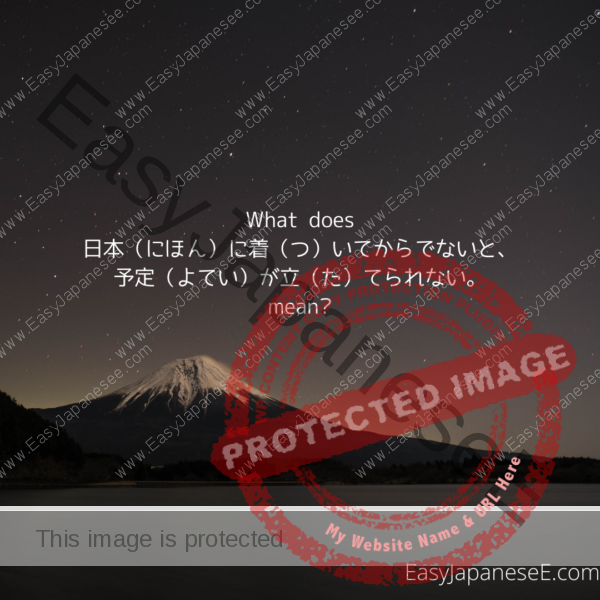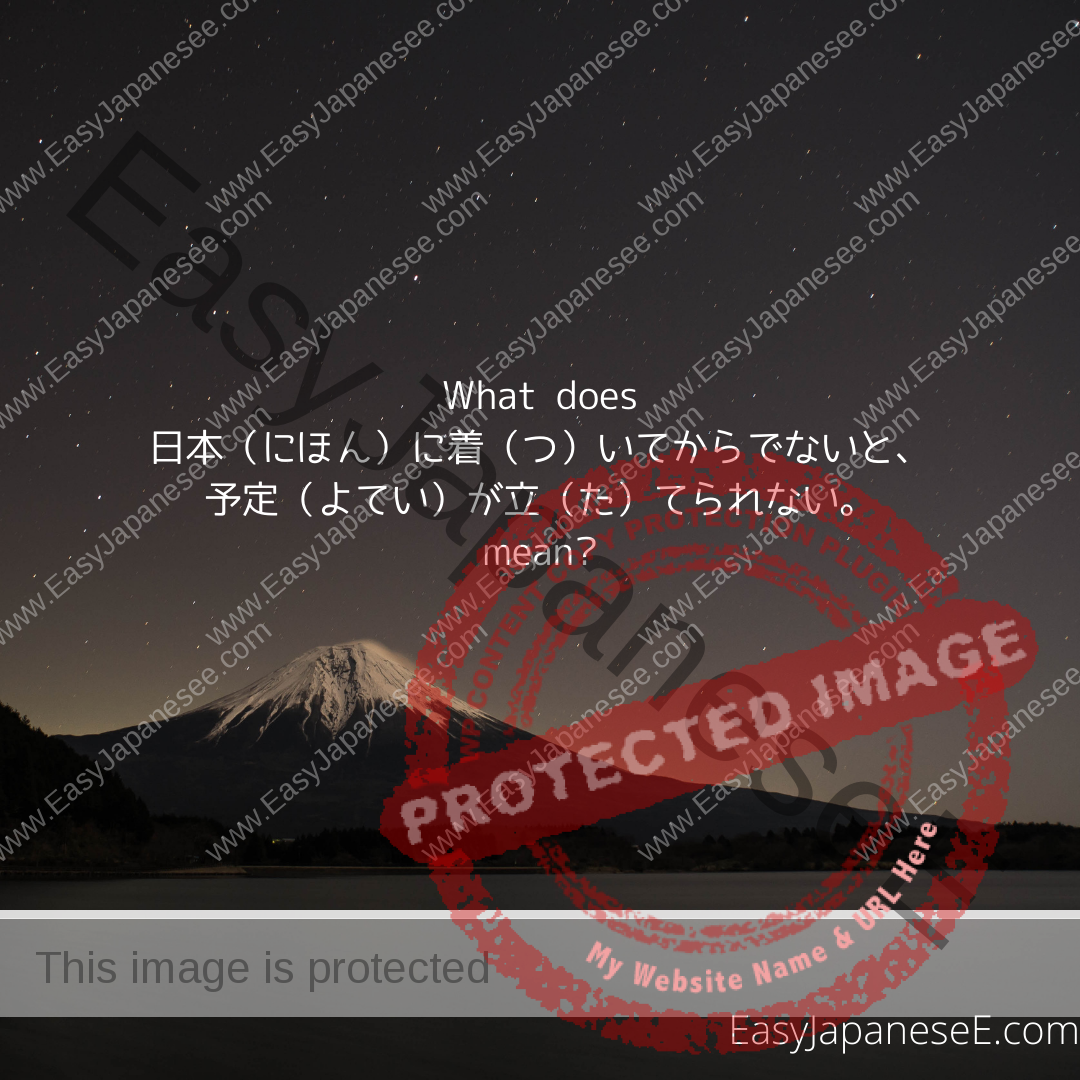
Today’s Grammar Point: ~てからでないと
~てからでないと is an expression to state an important condition that needs to be fulfilled before the action/condition stated in the second part of the sentence to occur. “Until I do / somebody does ~”
So, it is common a potential form verb is used in the second part of the sentence.
Connections
- [てform verb] からでないと
Examples
日本に着いてからでないと、予定が立てられない。(Today’s caption)
I cannot make a plan until I arrive in Japan.宿題をしてからでないと、外出できない。
I cannot go out until I finish my homework.父が帰ってからでないと、夕食が食べられない。
We cannot eat dinner until our father comes home.電源を切ってからでないと、蓋を開けることができません。
The lid can only be opened after the power is turned off.様子を見てからでないと、何ができるかわかりません。
I don’t know what can be done until I see what’s going on.この仕事を終えてからでないと、次に 何をするか決められません。
Only after finishing this work can I decide what to do next.そのお菓子を全部食べてからでないと、あたらしいお菓子を開けてはだめよ。
You have to eat all the sweets before you can open the new sweets.アクを抜いてからでないと、食べられないよ。
You can’t eat it until you remove the lye.殻を取ってからでないと、料理できない。
You can’t cook them until you remove the shell.テストの成績を見てからでないと、勉強の計画を立てるのは難しい。
It is difficult to plan your studies until I see your exam marks.
If you liked this article, please share it with your friends using the social media buttons below. Also, your clicks on ads on this page help covering the cost of running this website. Your support will be much appreciated.

